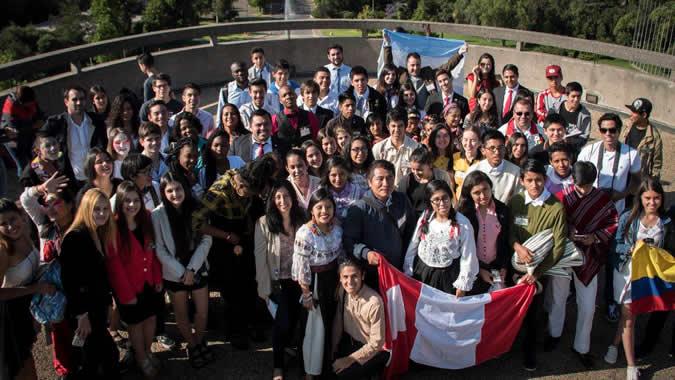Op-ed
Sixty young people, from eleven countries in Latin America and the Caribbean, presented innovative social proposals for eradicating child poverty with a view to complying with the 2030 Agenda for Sustainable Development, during a gathering in Santiago, Chile.
The young people, aged 15 to 17, are part of the Concausa project, an initiative of the América Solidaria Foundation, supported by ECLAC and UNICEF, that seeks to identify and share social innovation proposals that young people in the region are developing in their communities on the fight against hunger, gender equality, the end of poverty and quality education, among other issues.
Concausa was launched last September and received around 250 applications with proposals by young people from all of the region’s countries.
The administrators of the 15 selected projects, coming from Argentina, Chile, Colombia, Costa Rica, Ecuador, Guatemala, Haiti, Mexico, Paraguay, Peru and Uruguay, traveled to Santiago, Chile for a gathering on November 20-26, where they participated in workshops and other activities aimed at strengthening and developing their abilities and transforming their way of seeing things and relating to the world.
The week culminated in the presentation of their initiatives at a seminar at the headquarters of the Economic Commission for Latin America and the Caribbean (ECLAC), which was inaugurated by the Deputy Executive Secretary of the United Nations regional organization, Antonio Prado, and by the Chief Executive of América Solidaria, Benito Baranda.
Other speakers included UNICEF’s Representative in Chile, Hai Kyung Jun, and the Swedish Ambassador, Jakob Kiefer.
After the ceremony, the young people themselves chose the best projects, which were those presented by the teams from Colombia, Haiti and Peru.
The first of these, called Seeds of Peace for Non-Violence, contributes to eradicating poverty, educating boys and girls as future leaders to promote peace and healthy coexistence both in their communities and with the environment, in four sectors of the Villasantana de Pereira district of Colombia.
The second project, entitled Let’s End Hunger, aims to provide training on family and community vegetable gardens based on agro-ecology in the district of Croix des Bouquets in Haiti, particularly among the families facing extreme vulnerability that live in the area of Lillavois.
The third and final initiative, meanwhile, involves working with children under three years of age who live with their mothers in a women’s prison in Trujillo, Peru.
According to ECLAC’s figures, although the region has made concrete advances in the last decade in terms of reducing child poverty, four out of every ten children still live in situations of poverty and 16.7% in conditions of extreme poverty.
In this scenario “it is urgent that governments allocate more resources to promote the rights of children, ensure a protective environment, increase the provision and quality of services and expand social protection systems, inspired by the logic of establishing universal entitlement to rights,” Antonio Prado sustained.



